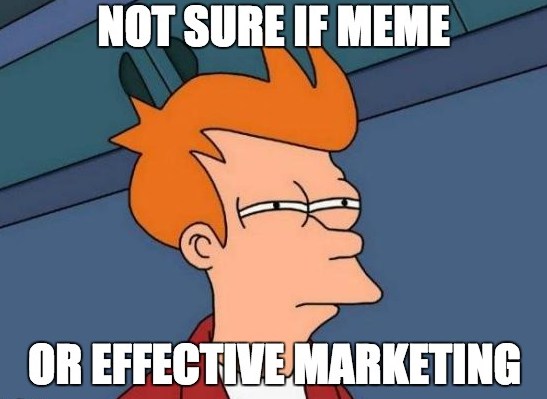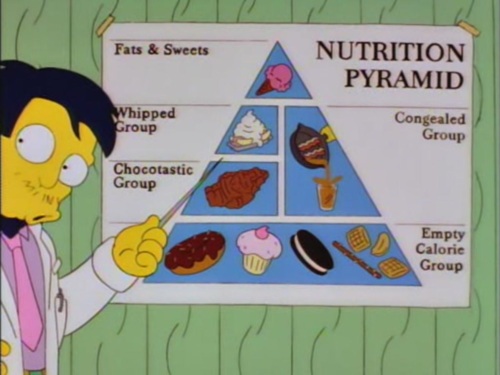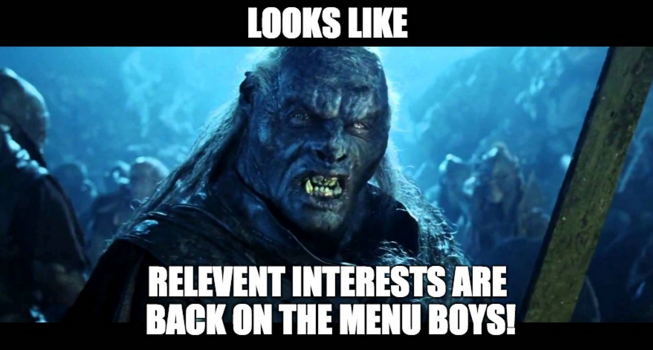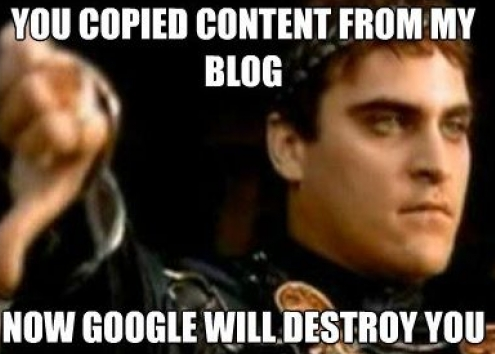10 Rock Solid Reasons To Stop Ignoring Your Marketing Professional
Marketing people will know right off the bat who I plan to talk about here. I’m sure most in the industry will have had something along the lines of “If you were just going to ignore me then why did you even engage me?” run through their heads more than once. But, we’re not here to bash, we’re here to educate. After all, aside from fellow business owners and managers, who else is going to understand how busy you are as well as a supplier who deals with you regularly? We get it. Marketing (or content marketing in particular) is time consuming and the value isn’t immediately apparent.
You’ve got a business to run, why would you waste time on a blog?
And of course as we see time and time again, just such an attitude can start to erode confidence in the poor marketing person as they continue to beg and plead with you to take the time to participate where needed in their marketing plan, which can unfortunately start to erode and ultimately end the relationship as they get more annoying in your eyes and results start to suffer, leaving you to go back to the drawing board and re-enter the endless cycle of jumping from marketer to marketer. This goes both for internal marketing staff and any agency you might engage.
But let’s get down to brass tax here: If you’re not coming to the table, then you are costing yourself money.
The most important thing to remember is that it’s completely counter-intuitive to assume that your marketing person is just trying very hard to waste your time. There is a reason that they are asking for that blog or getting you to fill out a questionnaire and it’s usually backed up by pretty solid data. So let’s take a look at some of the reasons to sit up and pay more attention:
- Blogs are bringing in more traffic than ever before!
 Speaking from personal experience, 7 out of 10 seems to be a pretty reliable average in terms of how many blogs are in the top 10 landing pages on a monthly basis for a lot of businesses. But as I say that’s only personal experience.As far as data is concerned:
Speaking from personal experience, 7 out of 10 seems to be a pretty reliable average in terms of how many blogs are in the top 10 landing pages on a monthly basis for a lot of businesses. But as I say that’s only personal experience.As far as data is concerned:
67% more leads go to B2B Marketers who blog regularly. (source)
B2C companies who blog generate up to 88% more leads per month than those who don’t! (source)
On average, companies who blog end up with 97% more inbound links. (source)
Reaching 300+ indexed pages for your website (meaning pages that search engines have found) can increase your traffic by up to 236% (source)
Let that sink in for a bit. Think about how much additional traffic that is. That’s all money that you’re missing out if you’re not 100% behind your business blog.
- Social Media is currently killing it for lead generation.
 I’ve currently got a client running a video advertising campaign on Facebook at $5 per day. It’s seeing on average about 1700 or more views per week and has brought in over 50 conversions over the past 30 days for a service that is by no means a small financial commitment. Needless to say the client loves Facebook.It surprises me that so many businesses still see Facebook as “not for them” given that it drives around 25% of the web’s traffic.
I’ve currently got a client running a video advertising campaign on Facebook at $5 per day. It’s seeing on average about 1700 or more views per week and has brought in over 50 conversions over the past 30 days for a service that is by no means a small financial commitment. Needless to say the client loves Facebook.It surprises me that so many businesses still see Facebook as “not for them” given that it drives around 25% of the web’s traffic.
To put that in perspective, Facebook overtook Google as a news source in 2015 & the 7 next biggest social media platforms shared in the next 7% of the above mentioned traffic.
However that’s nothing to be laughed at. Social referral traffic overall is now higher than Organic (non-paid Search Engine) traffic!
So the next time your marketing person is asking you for content to use in their social campaign, take it seriously!
- Your Customers Will Trust You More.
 This is the age of personality marketing. Gone are the days where authoritative companies simply peddled their wares and told consumers what to buy. Social Media in particular has given the power back to the people. If you haven’t thought about your company personality in 2016, you will likely pay the price.Be human online. Nothing is too trivial if it presents your company in a positive light as human beings who care about their customers.
This is the age of personality marketing. Gone are the days where authoritative companies simply peddled their wares and told consumers what to buy. Social Media in particular has given the power back to the people. If you haven’t thought about your company personality in 2016, you will likely pay the price.Be human online. Nothing is too trivial if it presents your company in a positive light as human beings who care about their customers. - You Might Think Business Is Good, But It Can Always Get Better.
 There are two schools when it comes to the types of businesses who don’t have at least some participation in online marketing: Those who don’t understand and those who are stagnant.Quite often the latter involves some portion of the former. I’ve presented proposals to companies with massive turnover who were convinced they were doing just fine, but once they saw the projected ROI and how much more money they were missing out on, that changed quickly.
There are two schools when it comes to the types of businesses who don’t have at least some participation in online marketing: Those who don’t understand and those who are stagnant.Quite often the latter involves some portion of the former. I’ve presented proposals to companies with massive turnover who were convinced they were doing just fine, but once they saw the projected ROI and how much more money they were missing out on, that changed quickly.
In some cases you might even find that you’re currently in the smaller portion of your market when compared to online potential.
- You Don’t Feel The Same About Traditional Marketing.
 I feel like this one is a hangover from decades of traditional dominance. It might seem insane to anyone who has had dealings with a successful online campaign or knows pretty much anything about online marketing statistics, but believe it or not, some businesses still have this attitude.The fact of the matter is that online marketing a) Is more dynamic and inter-changeable, b) Is More accountable, c) has a much bigger audience share & increasingly d) Is just more effective.
I feel like this one is a hangover from decades of traditional dominance. It might seem insane to anyone who has had dealings with a successful online campaign or knows pretty much anything about online marketing statistics, but believe it or not, some businesses still have this attitude.The fact of the matter is that online marketing a) Is more dynamic and inter-changeable, b) Is More accountable, c) has a much bigger audience share & increasingly d) Is just more effective.
It is far past time for companies to stop looking at the internet as a fad or something that is still in its infancy. This technology is progressing at breakneck speed and the longer you leave it, the further behind you are going to be.
- Would You Trust A Surgeon To Fix Your Car?
 There’s no nice way to put this. Sometimes business owners need to get out of their own way when it comes to their marketing. You might be the most highly skilled, intelligent and capable person in your field, but is your field marketing?If the answer is no, then you need to defer to the experts. No matter how smart you are or how many late night Googling sessions you have, none of that can make up for real life experience with real life campaigns, especially if they have at least a few years under their belt. Experienced marketers have lived through all of the rapid change that comes with the territory and out the other side. This provides them with a context and ability to “read” the industry in ways that few other methods can achieve. This comes back to our opening paragraph. Off the top of my head I can think of a dozen other marketers who I’ve shared the “Why did they engage me if they don’t want to take my advice?” conversation with.
There’s no nice way to put this. Sometimes business owners need to get out of their own way when it comes to their marketing. You might be the most highly skilled, intelligent and capable person in your field, but is your field marketing?If the answer is no, then you need to defer to the experts. No matter how smart you are or how many late night Googling sessions you have, none of that can make up for real life experience with real life campaigns, especially if they have at least a few years under their belt. Experienced marketers have lived through all of the rapid change that comes with the territory and out the other side. This provides them with a context and ability to “read” the industry in ways that few other methods can achieve. This comes back to our opening paragraph. Off the top of my head I can think of a dozen other marketers who I’ve shared the “Why did they engage me if they don’t want to take my advice?” conversation with.
The only thing you need to know before entrusting your marketing entirely to an expert is a) Do they have experience and b) Do they have a history of results.
If the answer to both of those is yes, then you’re in good stead. Trust them. Listen to them. Participate when they need you to participate.
- Do You Really Want To Stay On the Endless Merry-Go-Round Of Finding New Marketers?
 I can say with confidence that there definitely are a lot of amateurs, sharks and cowboys in my industry. This can result in a lot of businesses bouncing around from agency to agency to in-house and on for quite a while.However there is absolutely another class of marketing drifter out there and this is the business who doesn’t take the time to properly understand their marketing or their marketer and their goals. If a marketer has a plan that involves you, it would be pretty illogical to assume that they could get results just as good without you as those they could get when they can implement all aspects of that plan.
I can say with confidence that there definitely are a lot of amateurs, sharks and cowboys in my industry. This can result in a lot of businesses bouncing around from agency to agency to in-house and on for quite a while.However there is absolutely another class of marketing drifter out there and this is the business who doesn’t take the time to properly understand their marketing or their marketer and their goals. If a marketer has a plan that involves you, it would be pretty illogical to assume that they could get results just as good without you as those they could get when they can implement all aspects of that plan.
And yet, unfortunately, this can often be the case. I’ve seen too many businesses move on endlessly (and often needlessly) between agencies and in-house marketers simply because they can’t be bothered to commit the required time to understand and participate in their own marketing. They then hurt themselves and their results in the process and become dissatisfied with the results.
It’s a very odd place to be as a marketer given that you’re often engaged for services because the business has some understanding that there is money to be made online, but for some reason they don’t want to do what that requires of them if they want success.
This can sometimes result in a business who tires of online marketing altogether via a situation of their own making.
- You Could Be Doing Something Seriously Wrong.
 This one applies mostly to Onsite SEO (meaning the elements of your website which directly impact how well you rank on Search Engines). I’ve definitely experienced pushback on occasion to suggestions around changing the structure of a client’s website. Quite often the objections centre around design aspects the client might be fond of, or having already spent quite a bit of time putting the website together not so long ago.But website structure is one of the most important aspects of onsite SEO. I’ve had clients with brand new websites and brand new businesses ranking in a matter of weeks with a simple content/main menu restructure. If there was ever a time to listen to your marketer and trust their expertise, it’s when they’re making onsite recommendations.
This one applies mostly to Onsite SEO (meaning the elements of your website which directly impact how well you rank on Search Engines). I’ve definitely experienced pushback on occasion to suggestions around changing the structure of a client’s website. Quite often the objections centre around design aspects the client might be fond of, or having already spent quite a bit of time putting the website together not so long ago.But website structure is one of the most important aspects of onsite SEO. I’ve had clients with brand new websites and brand new businesses ranking in a matter of weeks with a simple content/main menu restructure. If there was ever a time to listen to your marketer and trust their expertise, it’s when they’re making onsite recommendations.
But you should always listen. They’re trying to help.
- You Actually Do Have Better Things To Do With Your Time.
 A productive sit-down with your marketer can yield very tangible (and reportable) results. If you’re worried that you’re wasting your time, why not just ask what the aim of the exercise you’re currently discussing is and how this affects your business? Any marketer who can’t answer that question isn’t worth employing. Check if what you think is correct and remember that you’re talking to an expert. Trust them. Give them a chance. Then ask for a report.You have better things to do with your time than argue the point or impede the success of the project. You’ll know via reporting soon enough whether or not you were right.
A productive sit-down with your marketer can yield very tangible (and reportable) results. If you’re worried that you’re wasting your time, why not just ask what the aim of the exercise you’re currently discussing is and how this affects your business? Any marketer who can’t answer that question isn’t worth employing. Check if what you think is correct and remember that you’re talking to an expert. Trust them. Give them a chance. Then ask for a report.You have better things to do with your time than argue the point or impede the success of the project. You’ll know via reporting soon enough whether or not you were right. - Your competitors get it.
 Chances are you know competitors that are having success online. These people don’t delegate their marketing as such, they hire/engage marketers, take their advice onboard, engage in the required activity, make the required time, have the required conversations, study the reporting and then reap the benefits!Successful companies will very often cite marketing as one of their most valuable departments and with good reason. But no business ever got anywhere without taking the time to comprehend the different parts of their business well enough to know exactly what is going on and surrounding themselves with experts they trust to handle the deeper aspects.
Chances are you know competitors that are having success online. These people don’t delegate their marketing as such, they hire/engage marketers, take their advice onboard, engage in the required activity, make the required time, have the required conversations, study the reporting and then reap the benefits!Successful companies will very often cite marketing as one of their most valuable departments and with good reason. But no business ever got anywhere without taking the time to comprehend the different parts of their business well enough to know exactly what is going on and surrounding themselves with experts they trust to handle the deeper aspects.
Your relationship with your marketer can be one of the best and most fruitful that a business can encounter provided you put in the time and give them what they need, as with any employee. I’ve formed lifelong business bonds (and sometimes personal friendships) with many of my clients over the years and they trust me implicitly. That trust has empowered me to help them nail their online activity and kick goals for years, with much more still to come.







 Again, remember that you are speaking to people. Not only that, but people who don’t know the jargon of your industry. Don’t be afraid to inject a little personality and normal human language into it, along with a little bit of humour and feeling. Use engaging imagery and/or videos and try to keep your information concise with things like bullet points and categorized paragraphs for easy consumption.
Again, remember that you are speaking to people. Not only that, but people who don’t know the jargon of your industry. Don’t be afraid to inject a little personality and normal human language into it, along with a little bit of humour and feeling. Use engaging imagery and/or videos and try to keep your information concise with things like bullet points and categorized paragraphs for easy consumption. Don’t let intimidation stop you. You might not be the most technically minded person, but allowing yourself to remain in the dark about important aspects of blogging can be very counter-productive.For instance, if your blog categorises posts or offers the ability to “tag” them as being about particular topics, then you’ll want to be very careful that your website is set up in a way that doesn’t allow search engines to crawl the category and tag pages that this creates. They pull snippets from the blogs and use them as a preview under these category pages and this can slowly create duplicate content issues as you add more and more content. Like this:
Don’t let intimidation stop you. You might not be the most technically minded person, but allowing yourself to remain in the dark about important aspects of blogging can be very counter-productive.For instance, if your blog categorises posts or offers the ability to “tag” them as being about particular topics, then you’ll want to be very careful that your website is set up in a way that doesn’t allow search engines to crawl the category and tag pages that this creates. They pull snippets from the blogs and use them as a preview under these category pages and this can slowly create duplicate content issues as you add more and more content. Like this:

 What do you want to rank for? What are you close to ranking for already? You should have a think about this when mapping out a content plan (an essential part of the process) so that you can combine this knowledge with the other goals of the blog. Speak like a human, but speak about relevant topics. Adding new content around keywords could see you get that little boost you’ve been looking for. Even better, a multi-part blog on that topic could push you over the line if you’re already close to page one.
What do you want to rank for? What are you close to ranking for already? You should have a think about this when mapping out a content plan (an essential part of the process) so that you can combine this knowledge with the other goals of the blog. Speak like a human, but speak about relevant topics. Adding new content around keywords could see you get that little boost you’ve been looking for. Even better, a multi-part blog on that topic could push you over the line if you’re already close to page one. If you’re sharing your blog via Social Media, the unique content that you produce should be what you push the hardest. It’s great to post various links to thinks such as news & humour in order to get people engaging with the page, but once that happens and the newsfeed algorithm starts showing them your content more often, start putting value in front of them.This is how you build authority and repeat business. Promote your posts across any social platforms you’re using in order to maximize exposure and build value around your blog.
If you’re sharing your blog via Social Media, the unique content that you produce should be what you push the hardest. It’s great to post various links to thinks such as news & humour in order to get people engaging with the page, but once that happens and the newsfeed algorithm starts showing them your content more often, start putting value in front of them.This is how you build authority and repeat business. Promote your posts across any social platforms you’re using in order to maximize exposure and build value around your blog.